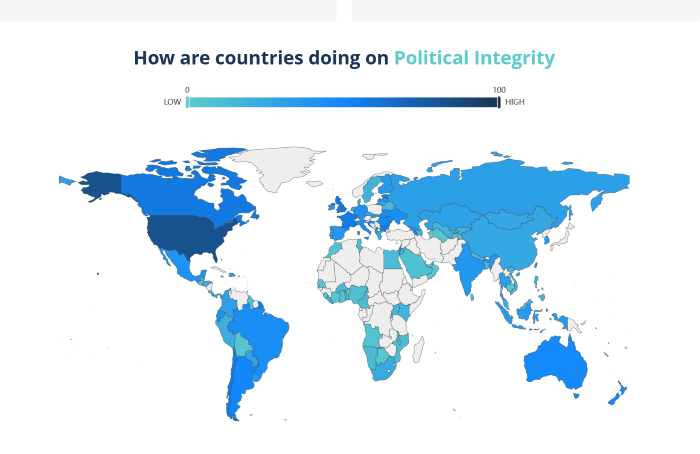Madrid, 9 December 2022 – On the occasion of International Anti-Corruption Day, Access Info is calling on European governments to do more to ensure that the data needed for preventing corruption is both collected and made public.
In the wake of the shock ruling from the Court of Justice of the European Union, which has already suspended access to beneficial ownership registers in various countries, including Austria, Belgium, Cyprus, Germany, Ireland, Luxembourg, Malta and the Netherlands, Access Info warns that it is not only data on the owners of businesses that is missing.
Access Info’s research as part of the Global Data Barometer survey reveals an average score for European countries (20 EU countries plus the UK) for anti-corruption data of just 42%.
Data is missing on key instruments such as assets declarations (39% European average score), ownership of land (20%), and lobbying (18%). The score for beneficial ownership registers was already only 34% before the recent Court ruling.
For full data, come to the launch of the European Global Data Barometer report on Friday 16 December 2022 at 14 hrs registration here
When it comes to individual European countries, relatively stronger performers on anti-corruption data are the UK (67%), followed by Estonia (59%), France (56%) and Denmark (55%). The countries with the least data available are Lithuania (30%) and Malta (30%).
Helen Darbishire, Executive Director of Access Info, warned:
“Unless corruption-prevention measures are implemented in a consistent manner across the whole of Europe, corruption and organised crime will take advantage of countries with the weakest controls.
“With no data, anti-corruption agencies, investigative journalists, and civil society organisations can’t do their work, public trust in government declines, and the only winners are those engaged in illegal activities.”
The Global Data Barometer survey also found that even when data does exist because it is collected by governments, it is often only accessible to the public with difficulty, after requests or even payment such as for company ownership data, and many times is not provided in open data formats.
Transparency vs Privacy for Anti-Corruption Data
Access Info notes that one of the biggest challenges to ensuring the transparency of data collected as part of anti-corruption and integrity mechanisms is concerns about personal data protection. While recognising the legitimacy of protecting privacy, it is clear that a proper balancing needs to be done.
Rachel Hanna, Legal Research and Campaigner at Access Info explained:
“Those who enter public life, such as by assuming public office, engaging in lobbying, or owning companies, need to accept a certain degree of scrutiny in the greater public interests of preventing corruption, tax evasion, money laundering and organised crime.”
Access Info in May 2022 launched a Working Group on Privacy, and is now working with these legal experts on proposals for the criteria on striking the correct balance between transparency, privacy, and data protection in the context of anti-corruption measures.
Access Info is also working with the Open Spending EU Coalition and the Open Contracting Partnership on a detailed mapping of how this balance is being struck across Europe, so as to contribute to an evidence-based debate on the best solutions in law and in practice.

